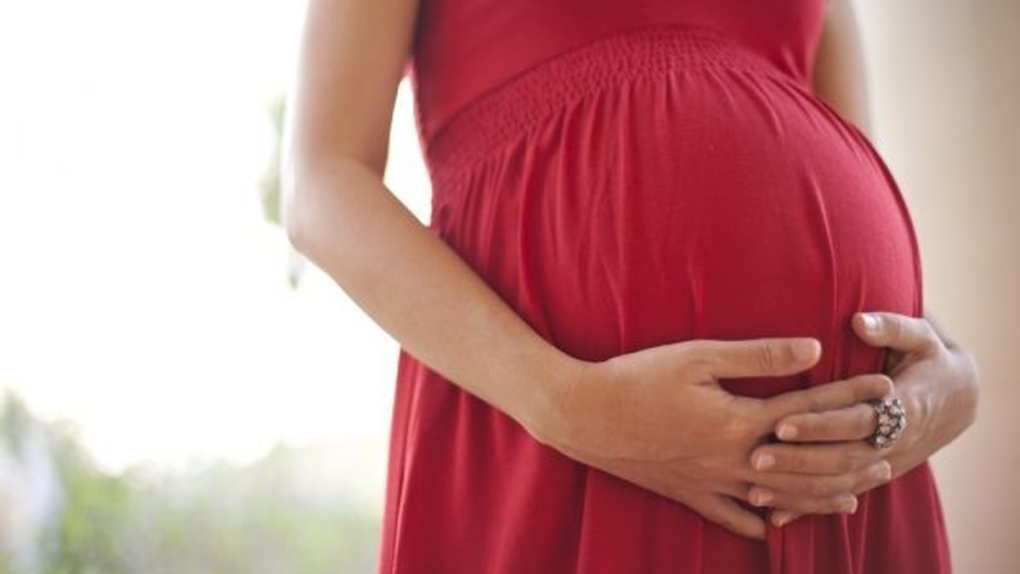
'He's in our hearts': Family and friends still seek answers one year after Nathan Wise’s disappearance
It’s been a year since Nathan Wise went missing and his family is no closer to finding out what happened to him.
The lower house of the Russian parliament on Thursday passed a bill banning foreigners from using Russian surrogate mothers.
The bill adopted by the State Duma mandates that only married Russian citizens or single Russian women who cannot give birth to a child for medical reasons will be able to use the services of surrogate mothers.
Commercial surrogacy is legal in Russia, but religious groups have criticized the practice as too commercial and linked it to crime.
Vyacheslav Volodin, the parliament speaker, said Thursday's decision was made in order to protect Russian children. According to Volodin, writing on Telegram last week, about 45,000 babies born by surrogate mothers have been taken abroad over "the past few years."
Proponents of the bill have often associated surrogacy with child trafficking and the organ trade. They have also criticized the use of surrogates by same-sex couples.
"The purpose of the law is to prohibit surrogacy for foreign citizens. Who is coming? We don't know. Where are the children being taken? We don't know either. These are our children," Volodin told the Duma.
"They can be taken out in order to be used for (transplantation of) organs, into same-sex families. It is forbidden by law to take our children out. Children will automatically straight away receive Russian citizenship and will be protected," he added.
Under the bill passed Thursday, couples where one of the spouses is a Russian citizen will still be able to use Russian surrogate mothers. It stipulated that a child born by a surrogate mother in Russia would automatically be given Russian citizenship.
To become federal law, the bill needs to be approved by the Federation Council, the upper house of Parliament, and signed by President Vladimir Putin.

It’s been a year since Nathan Wise went missing and his family is no closer to finding out what happened to him.
Dozens of Ontarians are expressing frustration in the province’s health-care system after their family doctors either dropped them as patients or threatened to after they sought urgent care elsewhere.
An Ottawa pizzeria is being recognized as one of the top 20 deep-dish pizzas in the world.
Amazon's paid subscription service provides free delivery for online shopping across Canada except for remote locations, the company said in an email. While customers in Iqaluit qualify for the offer, all other communities in Nunavut are excluded.
The fire burning near Fort McMurray grew from 25 hectares to 5,500 hectares over the weekend.
Russia’s President Vladimir Putin began a Cabinet shakeup on Sunday, proposing the replacement of Sergei Shoigu as defence minister as he begins his fifth term in office.
Police are searching for a male suspect after a man was “slashed in neck” on Sunday morning in downtown Toronto and died.
There were some scary moments for several people on a northern Ontario highway caught on video Thursday after a chain reaction following a truck fire.
Health Canada announced various product recalls this week, including electric adapters, armchairs, cannabis edibles and vehicle components.

English, history, entertainment, math and geography: high school trivia teams could be quizzed on any of it when they compete at the Reach for the Top Nationals in Ottawa in June.
An Ottawa pizzeria is being recognized as one of the top 20 deep-dish pizzas in the world.
A family of fifth generation farmers from Ituna, Sask. are trying to find answers after discovering several strange objects lying on their land.
A Listowel, Ont. man, drafted by the Hamilton Tigercats last week, is also getting looks from the NFL, despite only playing 27 games of football in his life.
The threat of zebra mussels has prompted the federal government to temporarily ban watercraft from a Manitoba lake popular with tourists.
A small Ajax dessert shop that recently received a glowing review from celebrity food critic Keith Lee is being forced to move after a zoning complaint was made following the social media influencer’s visit last month.
The Canada Science and Technology Museum is inviting visitors to explore their poop. A new exhibition opens at the Ottawa museum on Friday called, 'Oh Crap! Rethinking human waste.'
The Regina Police Service says it is the first in Saskatchewan and possibly Canada to implement new technology in its detention facility that will offer real-time monitoring of detainees’ vital health metrics.
Just as she had feared, a restaurant owner from eastern Quebec who visited Montreal had her SUV stolen, but says it was all thanks to the kindness of strangers on the internet — not the police — that she got it back.
 A vitamin D deficiency whilst pregnant could increase the chance of children developing multiple sclerosis (MS) in later life: study. (Twonix Studio / shutterstock.com)
A vitamin D deficiency whilst pregnant could increase the chance of children developing multiple sclerosis (MS) in later life: study. (Twonix Studio / shutterstock.com)